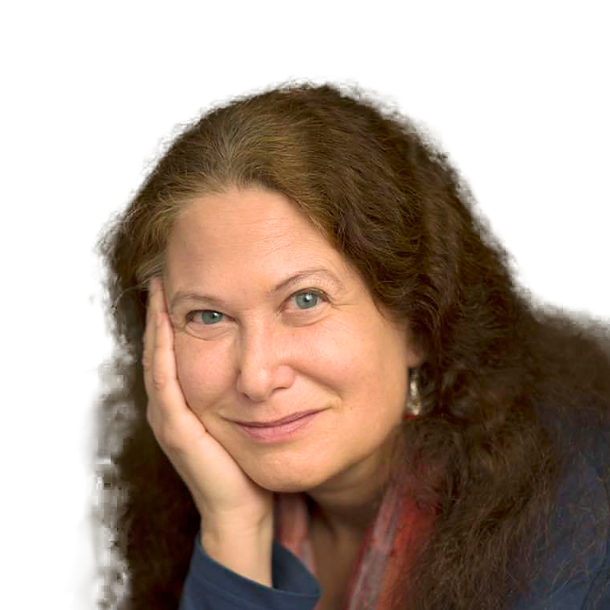View the archive of my two-hour class and discover the ways that poems’ original seeing can be invited, recognized, and worked with to open new depth, openness, and possibility – in words and in lives.
Hi, I’m Jane Hirshfield, and I invite you to join me in looking at poems as fields of discovery. During this two-hour class, we’ll be exploring discovery-making as a central aspect of poetry – in general, and also looking at some specific ways that discovery can be invited into a poem and into a life.
I’m the author of ten collections of poetry, most recently The Asking: New & Selected Poems. I’ve collected and co-translated four books presenting world writers from the deep past, and published two craft books, Nine Gates: Entering the Mind of Poetry and Ten Windows: How Great Poems Transform the World. Both delve the infrastructure elements of mind, heart, and perception that underlie poetry’s saying and seeing. With this class, “discovery” joins the list, somewhere between “hiddenness” and “surprise.”
I’ve been described over my life as a poet of eros, of horses, of the contemplative, of riddles, of science, of awe; as a biosphere-activist poet, a wedding-poem poet, a political poet, a poet of Zen. I think of myself as a human poet, a person who writes to feel and understand more fully what it is to find yourself a human being in this world. Which includes feeling undone, fractured, bewildered, sometimes angry, sometimes broken. And includes also joy, love’s many faces, having some sense of the comic, having some sense that your story is not separate or separable from the stories of others.
To discover something new about the world and in ourselves is why writers write, and why readers read. A lifelong lantern for me has been R.P. Blackmur’s “Poetry expands the available stock of reality.” Writing becomes art – words working with but also beyond declaration, decoration, documentation, instruction – when it makes and holds some discovery. Art leaves the world larger, even if by only by a single molecule’s added spin.
A poem’s discoveries can be made in countless ways. Sometimes they’re dug for and hard-won. Sometimes they feel gifts of the muse, sometimes they are gifts stumbled into by accident or error. However arrived at, that poem’s offer of transformed thought and feeling is precise, unique to its own words, unsummonable by paraphrase, and feels in its own moment needed, first by its writer, then by its reader.
The Five Things we’ll be exploring:
- Discovering the Poem Before the Poem: Before the first word arrives, a poet needs to become a magnet of discovery’s attention. The first step is moving a poem from silence to something.
- Finding the Possibilities in the Poem’s First Writing: We’ll be looking here at the ways words arrive onto a page and also at process in general, from finding a first draft’s first words to finding a life in writing. We’ll look at the difference between keeping a journal and writing a poem and the way that writing in the spirit of questions can lead to discovering new things. We’ll look also at risk-taking and vulnerability as an indispensable part of writing’s arrival.
- Choosing your instruments: Here, we’ll be looking at the way a poem’s early choices of grammar, voice, music, and intention can change what it’s able to say and able to find. Some poems need a cello, some need a drum. Some poems need the future tense, some have to be placed in the past. Some poems change their mind, mid-stream.
- Catalysts of Deepened Discovery: Certain words and gestures of language invite discovery. These transition words or gestures act as passwords, in that word’s original, pre-computer meaning: a word or phrase that, spoken aloud to a guard – or, in certain folk tales, spoken directly to a closed door or a wall – will grant you through-passage. Some of poetry’s secret passwords are held in specific words. Some are held in gestures of grammar and stance. In this part of the session, we’ll look at specific ways to change a poem’s seeing, to invite words, heart, and mind to look somewhere new.
- Revision’s Continuous Finding: Writers often feel revision as painful, as if preparing a piece of writing to pass some external test whose parameters are written in invisible ink. But revision means only: Keep looking. Keep the poem open to see what else, what more, might be found. When revision becomes a chance to make new discoveries, it feels continuous with writing’s primary bedrock joy. In this closing part of the session, we’ll look at some strategies for approaching the poem with beginner’s mind in each of its stages—sometimes even after it’s finished.
My hope for those who take this class, whether as poetry’s writers or readers, is that you will find your experience of poems a little shifted—that words’ windows will feel more open, that poems’ choices and music will feel deepened in focus, but also more free, more experimental in spirit, less worried, less fraught. I hope to leave in your pocket, pen, writer’s toolchest or reader’s awareness, some specific strategies of expansion to try in those times you may find yourself, mid-draft or mid-life, at a loss. I hope, most of all, that you’ll feel in your life, your writing, and your reading some sense of increased possibility, some reminder of limitless abundance. There’s always something more and new to discover.
Please join me.
-Jane Hirshfield
We’re pleased to offer this class in partnership with Conscious Writers Collective, the online writing platform and global writing community designed around the belief that rigorous writing instruction, a dedicated community of writers, and opportunities to learn from visiting experts should not be exclusive to an MFA. Find out more, and join CWC Poetry or CWC Fiction

